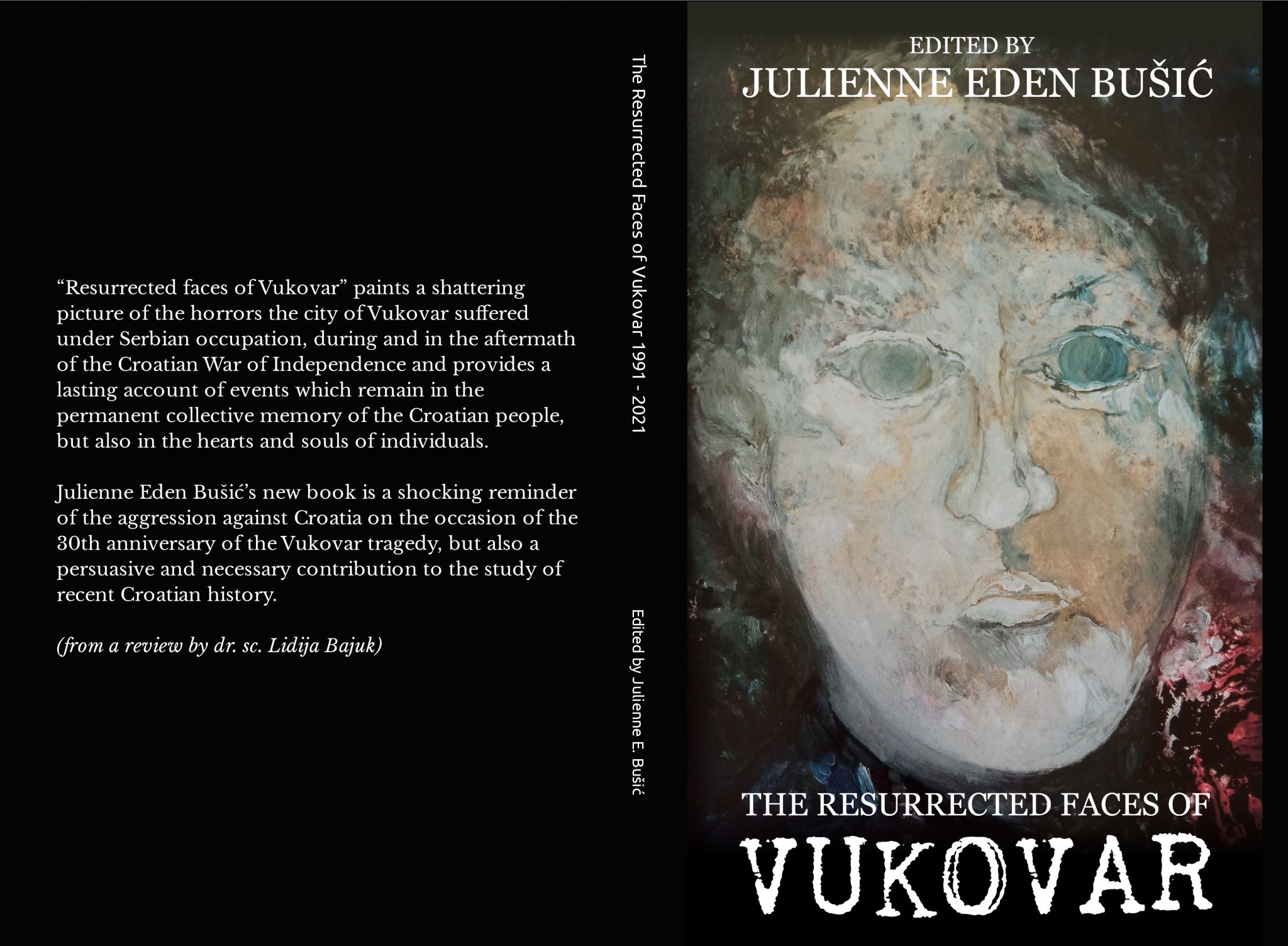

Julienne Eden Bušić's new book

FOTO: PR
Book “The Resurrected Faces of Vukovar” is now available on Amazon, in the English language! Highly recommend that our Croatian Embassies distribute it widely to politicians, media, and organizations. Never forget!
“Na muci se poznaju junaci, i u nevolji pravi prijatelji”, bila je rečenica koju sam pronašla podcrtanu među Zvonkovim bilješkama nakon njegove smrti. Nije iznenađujuće, budući da je bio dobro upoznat s patnjom i poteškoćama. Cijenio je junaštvo, ali prijateljstvo mu je bilo najsvetije. Junaštvo može biti prolazno, pobuda koja nestane u trenutku, ali prijateljstvo […]
“Resurrected faces of Vukovar” paints a shattering picture of the horrors the city of Vukovar suffered under Serbian occupation, during and in the aftermath of the Croatian War of Independence and provides a lasting account of events which remain in the permanent collective memory of the Croatian people, but also in the hearts and souls of individuals.
Julienne Eden Bušić’s new book is a shocking reminder of the aggression against Croatia on the occasion of the 30th anniversary of the Vukovar tragedy, but also a persuasive and necessary contribution to the study of recent Croatian history.
from a review by dr. sc. Lidija Bajuk
Memory is a blessed and a cursed thing: blessed when it reminds us of who we are and how we got there and cursed when it reminds us of who we are and how we got there. Philosophers, sociologists, psychiatrists, and writers have pontificated throughout history about the importance (or unimportance) of memory. Schopenhauer believed that when the thread of memory is cut, one goes insane, because man needs continuity and confirmation of his existence.
Nobel Prize winning author William Faulkner rightfully pointed out that the past is never dead; it isn’t even past, while Spinoza, for example, warned that if we want the present to be different from the past, we have to study the past. Here I might as well share my opinion as the editor of this book: if it’s not written down, it never happened. And thus will slowly be forgotten. So, on the occasion of the 30th anniversary of the Vukovar tragedy, it is fitting to present the many faces of Vukovar: in history, prose, poetry, art, photography, documentation, and fiction.
Dok ulazimo u deveti mjesec svjetske bitke protiv misterioznog virusa poznatog kao Covid-19, sveprisutna maska u svim svojim stilskim manifestacijama podsjeća na još jednu bolest za koju još uvijek ne postoji cjepivo: hrvatsku šutnju. U vrijeme Titove diktature, kada je skovan ovaj izraz, ljudi su također nosili maske, ali one su bile nevidljive ljudskom oku. […]
Selected texts in the book are excerpts from my novel Living Cells, and the book One Story from the Homeland War, and the remaining materials and texts in the book I collected and for the most part translated, knowing someday that they would, must, see the light of day. The subjects are painful – rape, torture, murder – and one longs to turn one’s attention instead to flowers in bloom, or the waves on the sea, or birdsong. But we owe it to the victims of a terrible aggression to speak or even scream, and often. Because the worst violation of historical truth is silence, and insanity is its result.
from a foreword by Julienne Bušić